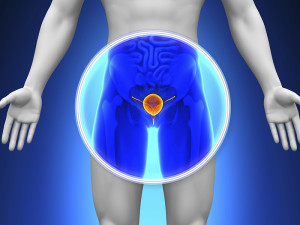The Prostate is a gland that helps in semen production, in men. This gland surrounds the tube that discharges urine out of the body. It is of walnut size in younger males, which grows larger along with the age. If the prostate grows too larger it leads to various problems i.e., Prostatic diseases. Prostatic diseases are most likely to appear in the males after age 50.
There are three main forms of the prostatic diseases that are commonly found in men and are of major concern. They are (i) Prostatitis, (ii) Benign Prostatic Hyperplasia and (iii) Prostate Cancer. A man may experience with one or more of these conditions.
Prostatitis: It is an inflammation, which is usually caused by bacteria. Based on the frequency of the infection occurrence in men, prostatitis is of three types. They are Acute Bacterial Prostatitis- which suddenly emerges from the bacterial infection; Chronic Bacterial Prostatitis- an repeatedly occurring bacterial infection, which is rare but hard to treat; and Chronic Prostatitis- also known as Chronic Pelvic Pain Syndrome (CPPS), usually have painful ejaculation, which makes feel men to urinate frequently, but passes only small amount of urine. Usually the patients with Prostatitis have the symptoms of ejaculating (painful urination), fever and chill, pelvic pain, very frequent urination, cloudy urine etc. So far there is no drug or an activity to prevent prostatitis, except personal hygiene.
Benign Prostatic Hyperplasia (BHP): It is a non-cancerous enlargement of the prostate, where the treatment is not advisable by doctors until the symptoms of severity are observed. It is mostly observed in the older men’s with the symptoms of dribbling after urination, frequent urination (especially at night) etc. BHP can be treated by active surveillance (watchful waiting), medications, surgery and heat treatments such as radio waves, microwaves, laser etc., to reduce extra prostate tissue. Apart from the above treatment methods, natural treatment (using herbs) of BHS is also observed from some studies, but the outcomes are conflicting, for which further research is to be done.
Prostate Cancer: It is very commonly observed cancer in men next to the skin cancer. Prostate cancer do not have any symptoms and is discovers after screening with Prostate Specific Antigen (PSA) test. An advanced stage of this cancer has a symptom of obstructing urine passage, unlike in BHS. It responds well to the treatment when detected in early stages. It is very difficult to prevent the prostate cancer according to the American Cancer Society, as its causes are not yet known. Treatment of prostate cancer is complex and depends on severity of the disease. It can be treated by watchful waiting (non-treatment), Surgery, Radiation (external beam or implantable “seeds”), Chemotherapy etc.
Not all, but most of the prostate diseases can be prevented by having low saturated fat diet, high amount of fruits and vegetables, drinking more water etc.

